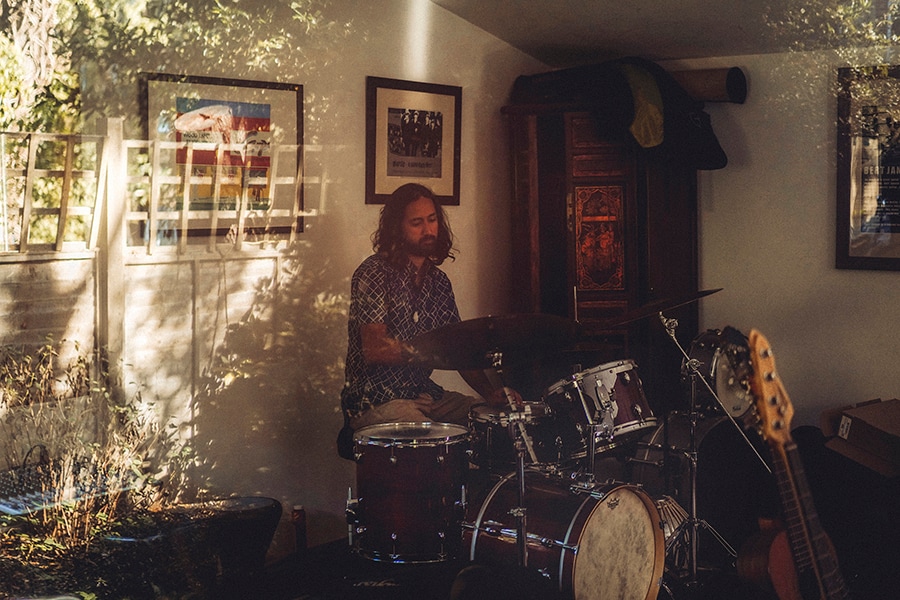
Jazz musician Sarathy Korwar is breaking global stereotypes of Indian music
Korwar moved to Britain from India a decade ago and found a following on the London jazz scene with smart, political concept albums that effortlessly splice genres together. His latest album, More Arriving, is a vibrant cacophony of Indian classical music, jazz and hip-hop that takes aim at cultural stereotypes and negative attitudes to immigration
 Sarathy Korwar, British musician, at his studio in London, July 24, 2019. Korwar mixes Indian classical music, jazz and hip-hop on political concept albums that take aim at cultural clichés
Sarathy Korwar, British musician, at his studio in London, July 24, 2019. Korwar mixes Indian classical music, jazz and hip-hop on political concept albums that take aim at cultural clichésImage: Tom Jamieson/The New York Times
LONDON — Think of Indian music, and what springs to mind?
If you live in the West, the answer is likely to be “sitars, flying carpets and yogis on retreats,” musician Sarathy Korwar said.
He wants to challenge that narrow view.
The London-based multi-instrumentalist’s latest album, “More Arriving,” is a vibrant cacophony of Indian classical music, jazz and hip-hop that takes aim at cultural stereotypes and negative attitudes to immigration. It’s definitely not a soundtrack for meditation.
Korwar moved to Britain from India a decade ago and found a following on the London jazz scene with smart, political concept albums that effortlessly splice genres together.
“More Arriving,” which features rappers from Mumbai and New Delhi, as well as skronking sax, “shows you what contemporary India sounds like, but it also shows you what contemporary London sounds like,” Korwar, 31, said.
©2019 New York Times News Service




